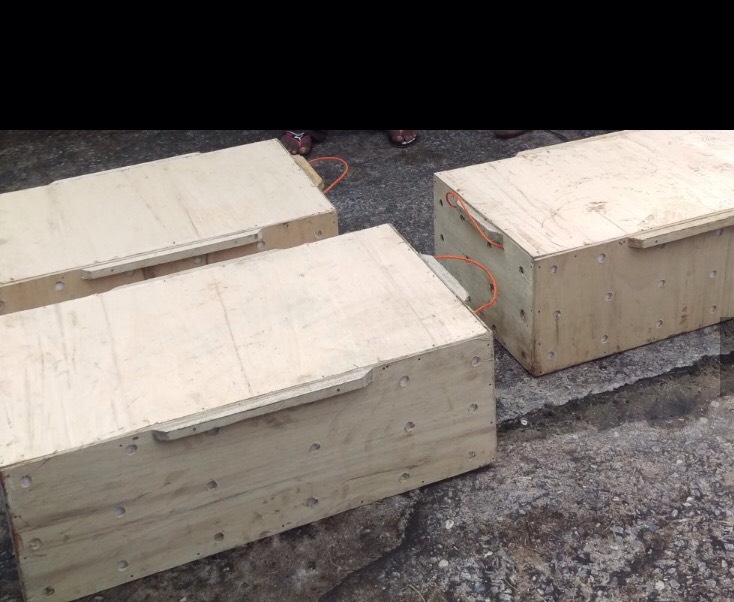The Nigeria Customs Service, on Wednesday, intercepted three consignments containing 140 species of snakes and 660 other animals imported into Nigeria from Cameroon, same day a similar consignment was uncovered in the US.
The three containers were brought in aboard a Cameroonian vessel, MV Flesh, through the Calabar waterways, to the National Inland Waterways Authority jetty in Calabar, Cross River State.
The other animals which were identified as geckos, millipedes, hairy frogs and spiders, were said to be worth about N6.9m.
The Customs Area Comptroller in charge of Calabar Free Trade Zone, comprising Cross River and Akwa Ibom commands, Mrs. Nanbyen Burromvyat, said the consignments were intercepted by vigilant officers on July 24, 2017.
She said the consignments, which had Lagos as there final destination, were prohibited items under the Schedule 3 of the Revised Import Prohibition List (Trade) in the Common External Tariff.
A packaging list of the items obtained by Newsmakers identified the species of snakes to include Atheris squamigera, Bitis gobanica, Dasypeltis ssp and Boiga pulverinata, while the geckos were Hemidactylus frenatus and Hemidactylus fasciatus.
The millipede, hairy frogs and spiders were of the Architreptulus, Trichobatrachus robustus and Arachnidae species respectively.
The containers, which were not opened, were handed over the items and the two suspects arrested to the authorities of the Nigerian Agricultural Quarantine Services for further investigation.
The suspect who allegedly brought in the consignments from Cameroon, Mr. Julius Novigana, said they were given to him by a friend to deliver to someone in Lagos.
Novigana, a Cameroonian agent, claimed that he did not know what were in the three containers, adding that his friend only asked him to deliver the consignments to an unidentified person in Lagos.
“A friend gave them to me in Cameroon to deliver to someone in Lagos. I only have the man’s number in Lagos. I have called him and he said he would send someone to pick them from me in Calabar,” he said.
The Captain of the vessel that brought the consignment, Victor Agbor, also a Cameroonian, said he did not spot the containers when he was about leaving his country.

CNN reported that a Southern California man was arrested, on Thursday, on suspicion of illegally importing the snakes and other reptiles to the US.
The three deadly king cobras were hidden in potato chip cans, according to a news release from the Los Angeles District Attorney’s Office.
The man, named in an affidavit as Rodrigo Franco, was taken into custody after United States Customs and Border Protection inspected a package from Hong Kong and discovered the three live, 2-foot-long snakes crammed into potato chip canisters.
King cobras are protected under the Endangered Species Act and their import or export is banned under the Convention on International Trade in Endangered Species of Wild Fauna and Flora.
In addition to the snakes, the parcel, sent through the United States Postal Service, contained three albino Chinese soft-shelled turtles, according to the affidavit.
Franco also sent a package containing six protected turtles, three-toed box turtles and ornate box turtles. from the United States to Hong Kong, but that shipment was intercepted by the United States Fish and Wildlife Service, according to the affidavit.
The snakes were seized by Customs and Border Protection due to the danger they posed, but the turtles were delivered to the suspect’s house in Monterey Park, California, where special agents from the United States Fish and Wildlife Service raided the address.
While executing a search warrant, agents found the package that originated in Hong Kong in a bedroom, where they also discovered a tank containing a live baby Morelet’s crocodile and tanks containing alligator snapping turtles, a common snapping turtle, and five diamondback terrapins, all of which are protected species, according to the affidavit.
Franco, 34, was charged with one count of illegally importing merchandise into the United States.
During a subsequent interview with authorities, Franco said he had received 20 king cobras in two prior shipments, but said all those snakes died in transit. 0







